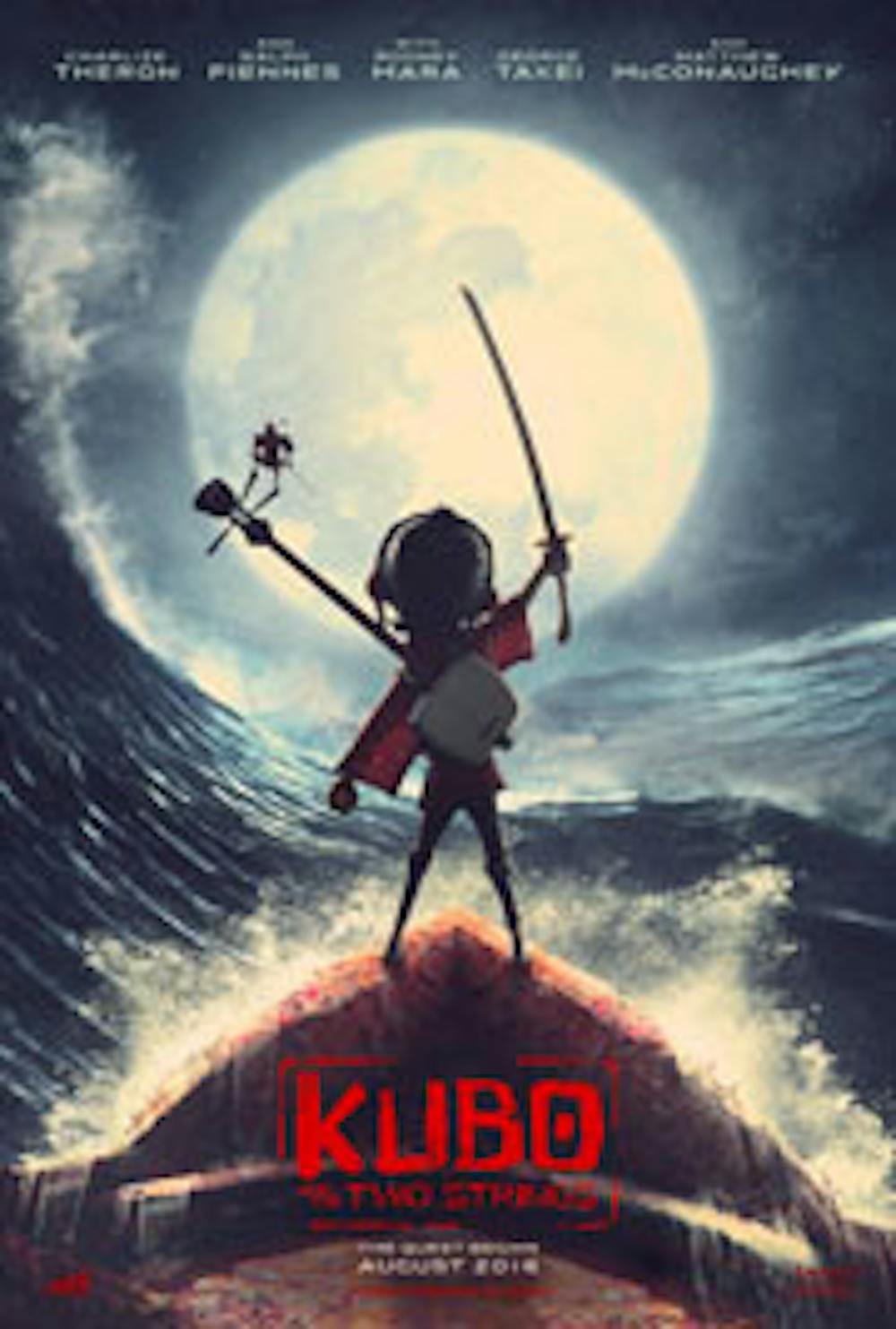Set in ancient Japan, the film “Kubo and the Two Strings” follows the story of a young boy who sets out on a journey to learn the truth about his missing father, his amnesiac mother and the grandfather he’s been running from his whole life.
With a stunning soundtrack by Academy Award-winning composer Dario Marianelli and transformative visuals by Laika Entertainment, “Kubo” is a story that stretches the limitations of its PG rating. Thrilling, suspenseful and sometimes downright terrifying, Laika’s newest feature film isn’t afraid to put its eponymous hero through more difficult and dangerous trials than a typical child protagonist. It also avoids the overly formulaic approach to animated films that most studios have adopted as their method for safe success.
Nothing about “Kubo” is safe. The storyline is drastically different than anything moviegoers are used to. The characters are dynamic and unable to fit into any sort of group-tested mold, and the animation is unconventional and difficult to pull off.
The film begins with the iconic line “If you must blink, do it now,” which is a good tip considering the hours of work stop motion animation requires for just a second of screen time. According to producer Travis Knight, it took Laika animators a week to complete a minute of footage. Their painstaking effort paid off; the final product blends the style of stop motion and the flow of computer-generated animation seamlessly.
Its unique animation style matches its unique story. The main conflict revolves around family, what it means to be a part of one, and how far one would be willing to go to protect theirs.
Kubo’s parents have an important role to play, which is a stark contrast to Hollywood’s love of killing parents off early, or completely forgetting their impact. They also manage to be their own characters independent of their son, with their own strengths and flaws, avoiding the popular trope of making parents (especially fathers) infallible wells of wisdom and experience.
The ending, above all else, is particularly striking. The production team had the thematic means to wrap up the movie in a happy bow, and no one could have faulted them for doing so; the journey itself was harrowing enough. However, Laika instead uses the last ten minutes of the film to make a powerful statement about the nature of loss.
Despite its darker themes, Kubo is ultimately a story about love, forgiveness, and accepting people as they are, flaws and all. Its heroes are genuine and its villains are genuinely scary, but no characters are beyond redemption.
Stop motion meets sentimentality in “Kubo and the Two Strings”

"Kubo and the Two Strings" uses computer and stop-motion animation to portray a young boy's thrilling quest for self discovery.



